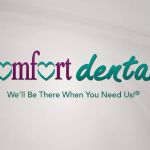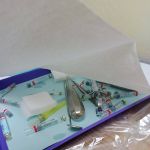Understanding Dry Mouth and Its Causes
Waking up with a dry mouth can be uncomfortable, and over time, it may lead to other dental or health problems. I’ve experienced it myself on several occasions, and after consulting my dentist, I learned that dry mouth, also known as xerostomia, is a common condition that occurs when the salivary glands don’t produce enough saliva. It can affect anyone, but it’s particularly prevalent among people who breathe through their mouth while sleeping or those who take certain medications.
Dry mouth isn’t just an inconvenience; it can also cause bad breath, tooth decay, gum disease, and difficulty swallowing. The good news is that there are simple strategies to prevent dry mouth, especially while you sleep. In this article, I’ll share practical tips that have helped me maintain a hydrated mouth overnight and how you can do the same.
1. Stay Hydrated Throughout the Day
One of the most effective ways to prevent dry mouth while sleeping is by staying well-hydrated throughout the day. Dehydration is one of the primary causes of dry mouth, and if you're not drinking enough fluids, it's likely that your body won’t have enough moisture to produce saliva at night. I’ve found that drinking water regularly throughout the day, rather than consuming sugary drinks or caffeine, really helps to prevent dryness at night.
Tip: Carry a water bottle with you throughout the day and take small sips regularly. Avoid drinking too much liquid right before bed to prevent waking up for bathroom trips during the night.
2. Breathe Through Your Nose, Not Your Mouth
Breathing through your mouth while sleeping is a common cause of dry mouth. This can happen if you have nasal congestion, allergies, or even poor sleeping posture. Over time, this can dry out your mouth and lead to discomfort. I’ve noticed that since I started being mindful of my breathing, it’s helped significantly reduce my dry mouth issues.
If you find that you breathe through your mouth at night, try to address the root cause. Using nasal strips or a humidifier can help open your nasal passages and improve airflow through your nose, helping you breathe properly while you sleep.
3. Use a Humidifier in Your Bedroom
Using a humidifier at night can help maintain moisture in the air, preventing your mouth from drying out as you sleep. I started using a humidifier in my room, and it has made a huge difference. This is especially helpful if you live in a dry climate or if your heating or air conditioning systems tend to make the air in your home dry. I simply fill the humidifier with water and let it run while I sleep.
Tip: Make sure to clean your humidifier regularly to prevent mold and bacteria buildup, which could worsen your condition.
4. Avoid Certain Foods and Drinks Before Bed
Some foods and drinks can contribute to dry mouth and worsen the symptoms. I’ve learned that consuming alcohol, caffeine, and salty or spicy foods before bed can lead to dehydration and increase mouth dryness. Instead, opt for a light snack that is hydrating, such as fruits or vegetables, if you need something before bed.
Additionally, I’ve found that reducing my intake of sugary or acidic foods helps maintain a healthier mouth overall. Sugar can promote the growth of bacteria, leading to tooth decay and worsening dry mouth.
5. Use a Saliva Substitute or Mouthwash
When I started to notice dry mouth at night becoming a recurring problem, my dentist recommended using a saliva substitute or mouthwash designed for dry mouth. These products are formulated to help mimic natural saliva, providing moisture and lubrication for your mouth while you sleep. There are many over-the-counter options available, including sprays, gels, and rinses.
Tip: Choose alcohol-free mouthwash to avoid further drying out your mouth. I personally prefer saliva substitutes that contain xylitol, as it helps with moisture retention and also promotes oral health.
6. Maintain Good Oral Hygiene
Taking care of your oral hygiene can also reduce the severity of dry mouth symptoms. Brushing your teeth at least twice a day, flossing, and using an alcohol-free mouthwash can help keep your mouth clean and reduce bacteria buildup. I’ve found that maintaining a good oral care routine, including using fluoride toothpaste, helps to protect my teeth and gums from the effects of dry mouth.
Additionally, I avoid brushing my teeth right before bed with products that may contain harsh chemicals, as this could further dry out my mouth. Instead, I use a gentle toothpaste designed for sensitive teeth, and I make sure to rinse with mouthwash before going to sleep.
7. Consider Using a Nightguard or Oral Appliances
For individuals who grind their teeth at night, using a nightguard can prevent the mouth from drying out. When I was diagnosed with bruxism (teeth grinding), my dentist recommended using a nightguard to protect my teeth and reduce dry mouth symptoms. A custom-fitted nightguard can help keep your mouth from becoming too dry by preventing clenching and grinding, which can worsen mouth dryness.
If you're unsure about whether a nightguard is necessary, consult your dentist for an evaluation and recommendations tailored to your specific needs.
8. Consult Your Doctor About Medications
If dry mouth persists despite following these tips, it's important to speak with your doctor. Certain medications, including antihistamines, antidepressants, and blood pressure medications, can cause dry mouth as a side effect. If this is the case for you, your doctor may be able to adjust your medication or recommend alternative treatments to reduce dryness.
My doctor was able to adjust my prescription, which made a noticeable difference in my symptoms. It's always worth discussing these issues with your healthcare provider to find a solution that works best for you.







 Tend East Nashville4.0 (319 review)
Tend East Nashville4.0 (319 review) Comfort Dental North Powers4.0 (914 review)
Comfort Dental North Powers4.0 (914 review) boca Dental and Braces4.0 (633 review)
boca Dental and Braces4.0 (633 review) Dr. Clayton Wainwright4.0 (11 review)
Dr. Clayton Wainwright4.0 (11 review) McCall Family Dentistry5.0 (718 review)
McCall Family Dentistry5.0 (718 review) Urgent Dental Care Sonoma3.0 (21 review)
Urgent Dental Care Sonoma3.0 (21 review) The Importance of Oral Health Education During Pregnancy for a Healthy Pregnancy
The Importance of Oral Health Education During Pregnancy for a Healthy Pregnancy Best Tips for Brushing Your Teeth Properly for Healthy Gums: Essential Techniques for Oral Health
Best Tips for Brushing Your Teeth Properly for Healthy Gums: Essential Techniques for Oral Health Why Skipping Dental Checkups Can Lead to Bigger Oral Health Problems
Why Skipping Dental Checkups Can Lead to Bigger Oral Health Problems Advantages of Porcelain Dental Restorations
Advantages of Porcelain Dental Restorations How Can Diabetes Cause Tooth and Gum Problems? Preventing and Managing Oral Health Issues
How Can Diabetes Cause Tooth and Gum Problems? Preventing and Managing Oral Health Issues Healthy Habits for Promoting Good Oral Health and Hygiene: Tips for a Healthy Smile
Healthy Habits for Promoting Good Oral Health and Hygiene: Tips for a Healthy Smile